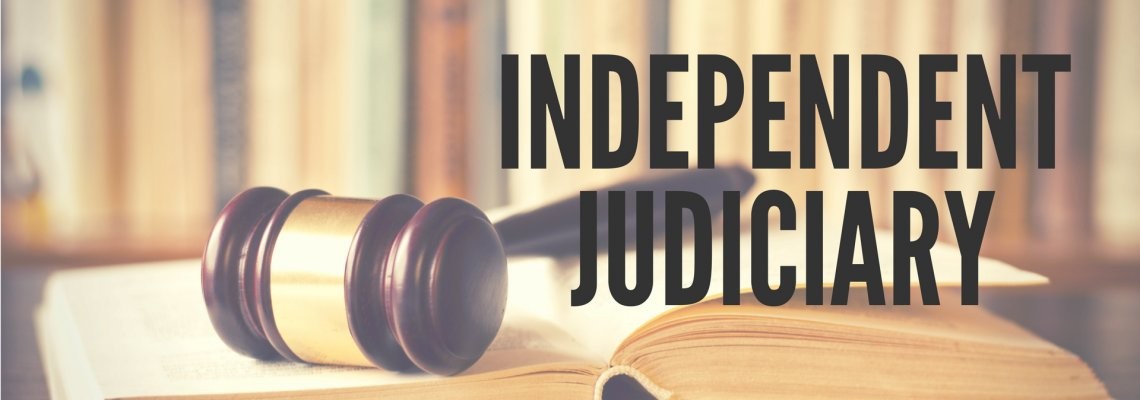INDEPENDENCE OF JUDICIARY
Judicial independence, the ability of courts and judges to perform their duties free of influence or control by other actors, whether governmental or private. The term is also used in a normative sense to refer to the kind of independence that courts and judges ought to possess.
Judicial independence is the concept that the judiciary should be independent from the other branches of government. That is, courts should not be subject to improper influence from the other branches of government or from private or partisan interests. Judicial independence is important to the idea of separation of powers. In other words, the other branches of government, powerful interests groups and persons should not be allowed by the courts to influence their decisions. This principle is largely reinforced by the well acclaimed theory of separation of powers.
BASIC ELEMENTS OF THE INDEPENDENCE OF THE JUDICIARY:
First, the judicial system must be publicly perceived as impartial in rendering decisions. Judges should not have personal interest, whether due to bribery and corruption or as a result of political pressures in the outcome of disputes between private parties and the government.
Second, judicial decisions must be accepted and respected by the contesting parties and the larger public.
Third, Judges need to be free from undue interference from the parties in a case, other branches of government and higher Courts within the National Judiciary.
Inspite of these constitutional and statutory safeguards, can we say that the Nigerian judiciary is truly independent? This is very doubtful.
Inspite of what appears to be strong constitutional and statutory protection for the appointment, removal, financial security and some administrative control by the judiciary in the conduct of its own affairs, the biggest threat in today’s Nigeria is the ease with which a judge can be removed on the prompting of the Executive. We have witnessed frequent arrest and prosecution of judges in Nigeria without subjecting such judges to the extant rules made by NJC pursuant to its constitutional powers on discipline of judges. In my view, every alleged misbehavior by a judge, other than an allegation that a judge committed outright crime, is most likely founded on a breach of judicial oath of office. Such an allegation must first be subjected to the disciplinary domain of NJC before anything else can occur.
There is a fair presence of decisional independence amongst Nigerian judges in respect of civil cases founded on common law and general criminal litigation. The area of concern has to do with the conduct of political matters, whether pre-election or post-election ones. While it has been generally acknowledged that election matters are sui generis (one of its kind), many believe that some of the decisions given were largely influenced by political, religious, tribal and social actors.
NB: This article is not a legal advice, and under no circumstance should you take it as such. All information provided are for general purpose only. For information, please contact chamanlawfirm@gmail.com
WRITTEN BY CHAMAN LAW FIRM TEAM
EMAIL: chamanlawfirm@gmail.com
TEL: 08065553671, 08024230080


